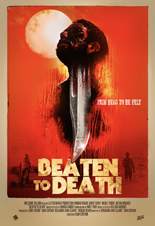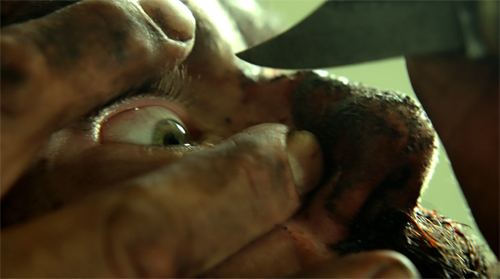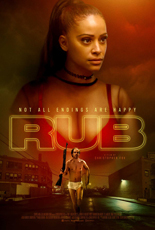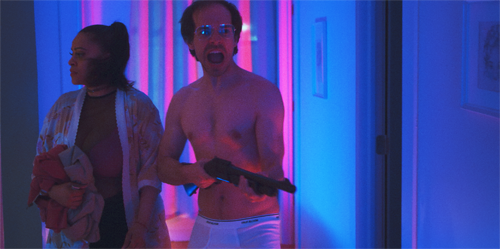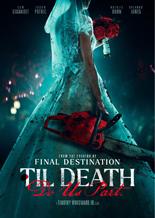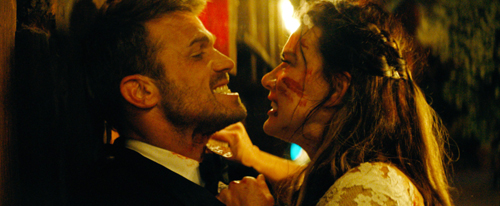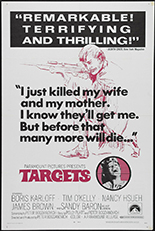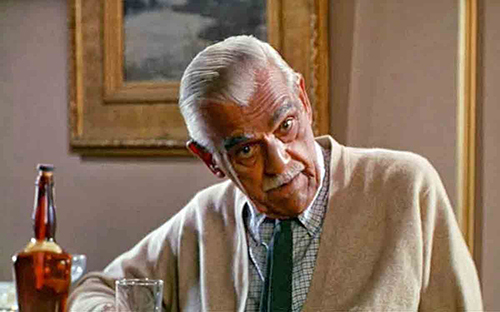
 Dubiously, Trauma Therapy: Psychosis bills itself as “the very final film for the late Tom Sizemore.” Yet at press time, IMDb shows he has 28 forthcoming titles in various stages of production, an alarming number of which co-star Bai Ling. But please don’t take any of that as a reason to watch this wretched sequel, easily one of 2023’s worst movies.
Dubiously, Trauma Therapy: Psychosis bills itself as “the very final film for the late Tom Sizemore.” Yet at press time, IMDb shows he has 28 forthcoming titles in various stages of production, an alarming number of which co-star Bai Ling. But please don’t take any of that as a reason to watch this wretched sequel, easily one of 2023’s worst movies.
“Wait, sequel?” you say. I get it; I never heard of the original Trauma Therapy, either, but IMDb confirms its existence since 2019. Prior viewing is unnecessary, in part because Trauma Therapy: Psychosis appears to be templated: same scenario, different setting.
A few losers are chosen to attend an advanced-treatment retreat of The Vance Institute. It’s named for Tobin Vance, the world-leading self-help guru, so Zig Ziglar can go fuck himself. Many harboring unresolved Daddy/Mummy issues, the participants are yelled at by a scowling Vance (Tom Malloy, The Alphabet Killer) to face their fears in order to be the person they want to be. It’s basically like every episode of Oprah, if Oprah were a histrionic dude-bro in a hoodie.
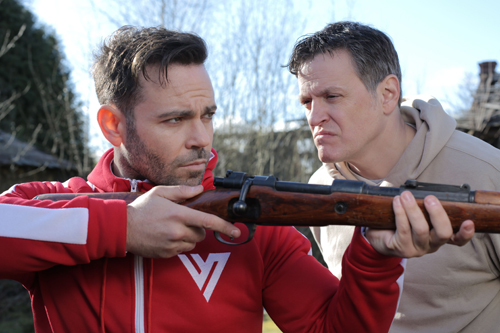
The anti-Hippocratic challenges Vance puts his patients through involve hallucinogenic drugs and hungry leeches before escalating to being poisoned and forced to chase a rabbit with antidote-infused blood. If you haven’t already guessed, yes, Vance’s “therapy” methods play for keeps.
Trauma Therapy: Psychosis feels it exists because co-writers Malloy and David Josh Lawrence (who plays an undercover Vance Institute enforcer) caught Squid Game on Netflix and got really jelly: “We can afford half a dozen matching track suits, too, right?”
Flat, unoriginal and so listlessly paced it often appears actors are either waiting for their cues or counting to 10 between lines, Psychosis has some interesting imagery, but dreadful execution — perhaps the most botched since Mary, Queen of Scots. Speaking of bad head, in spliced-in interview segments, Sizemore’s talk-show host sports a Mohawk by way of Travis Bickle. You deserved better, Tom.
We all do. —Rod Lott

